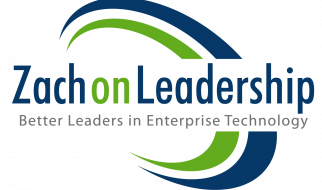My mind has tagged Naval Ravikant as the ?Tech Buddha? because of the much needed philosophical and pure science perspective he brings to the tech industry. A good place to start understanding this man is to listen to his interaction with Shane Parrish for the knowledge project of the Farnam Street blog. If you haven?t, go listen to it first before reading any further that will help you appreciate the nuggets of wisdom he spilled a few days back on Twitter.
Naval Ravikant: The Angel Philosopher on Making Decisions, Happiness, the Meaning of Life and more
Naval Ravikant (@naval) is the CEO and co-founder of AngelList. He’s invested in more than 100 companies, including?
www.fs.blog

How to Get Rich Without Getting Lucky
Wealth vs Money vs Status
Seek wealth, not money or status. Wealth is having assets that earn while you sleep. Money is how we transfer time and wealth. Status is your place in the social hierarchy.
Ethical Wealth
Understand that ethical wealth creation is possible. If you secretly despise wealth, it will elude you.
What should you avoid?
- Ignore people playing status games. They gain status by attacking people playing wealth creation games.
- You?re not going to get rich renting out your time. You must own equity ? a piece of a business ? to gain your financial freedom.
Basic Rule of Getting Rich
You will get rich by giving society what it wants but does not yet know how to get. At scale.
What should you do?
- Pick an industry where you can play long term games with long term people.
- Pick business partners with high intelligence, energy, and, above all, integrity. Don?t partner with cynics and pessimists. Their beliefs are self-fulfilling.
- Learn to sell. Learn to build. If you can do both, you will be unstoppable.
- Arm yourself with specific knowledge, accountability, and leverage.
- Specific knowledge is knowledge that you cannot be trained for. If society can train you, it can train someone else, and replace you. Specific knowledge is found by pursuing your genuine curiosity and passion rather than whatever is hot right now. Building specific knowledge will feel like play to you but will look like work to others.When specific knowledge is taught, it?s through apprenticeships, not schools. Specific knowledge is often highly technical or creative. It cannot be outsourced or automated.
- Embrace accountability, and take business risks under your own name. Society will reward you with responsibility, equity, and leverage. The most accountable people have singular, public, and risky brands: Oprah, Trump, Kanye, Elon.
- Leverage : ?Give me a lever long enough, and a place to stand, and I will move the earth.? ? ArchimedesFortunes require leverage. Business leverage comes from capital, people, and products with no marginal cost of replication (code and media).8.1 Capital: Capital means money. To raise money, apply your specific knowledge, with accountability, and show resulting good judgment.8.2 People: Labor means people working for you. It?s the oldest and most fought-over form of leverage. Labor leverage will impress your parents, but don?t waste your life chasing it.8.3 Products: Code & Media. The Internet has massively broadened the possible space of careers. Most people haven?t figured this out yet.Types of Leverage* Permissioned Leverage: Capital and labor are permissioned leverage. Everyone is chasing capital, but someone has to give it to you. Everyone is trying to lead, but someone has to follow you.* Permissionless Leverage: Product (Code and media) are permissionless leverage. They?re the leverage behind the newly rich. You can create software and media that works for you while you sleep. An army of robots is freely available ? it?s just packed in data centers for heat and space efficiency. Use it. If you can?t code, write books and blogs, record videos and podcasts.
- Learn Foundational Skills: Leverage is a force multiplier* for your judgement. Judgement requires experience, but can be built faster by learning foundational skills. There is no skill called ?business.? Avoid business magazines and business classes. Study microeconomics, game theory, psychology, persuasion, ethics, mathematics, and computers. Reading is faster than listening. Doing is faster than watching.
- Set and enforce an aspirational personal hourly rate. If fixing a problem will save less than your hourly rate, ignore it. If outsourcing a task will cost less than your hourly rate, outsource it.
- Work as hard as you can. Even though who you work with and what you work on are more important than how hard you work. [Read Point 3 again].
- You should be too busy to ?do coffee,? while still keeping an uncluttered calendar.
- Play iterated games. All the returns in life, whether in wealth, relationships, or knowledge, come from compound interest.
Parting Note:
There are no get rich quick schemes. That?s just someone else getting rich off you.
Apply specific knowledge, with leverage, and eventually you will get what you deserve.
Foot note:
*Force Multiplier: In military science, Force multiplication or a force multiplier refers to a factor or a combination of factors that dramatically increases (hence ?multiplies?) the effectiveness of an item or group, giving a given number of troops (or other personnel) or weapons (or other hardware) the ability to accomplish greater things than without it.
Here is the unadulterated version from the TechBuddha himself!
Summary:
PS: I have started a medium series to curate the best tweets of Naval.
-Moses Sam Paul

This story is published in The Startup, Medium?s largest entrepreneurship publication followed by 332,253+ people.
Subscribe to receive our top stories here.



